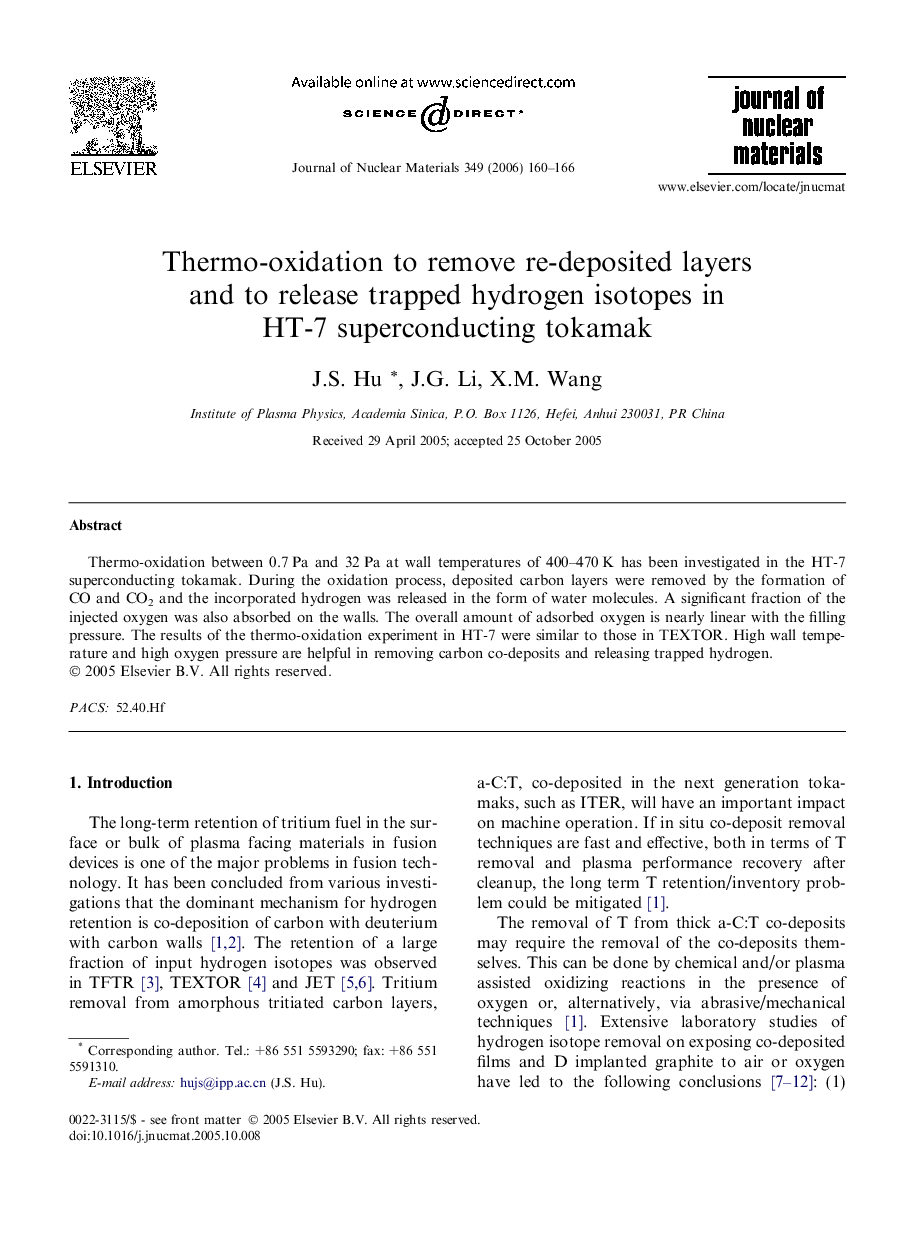| Article ID | Journal | Published Year | Pages | File Type |
|---|---|---|---|---|
| 1569975 | Journal of Nuclear Materials | 2006 | 7 Pages |
Abstract
Thermo-oxidation between 0.7Â Pa and 32Â Pa at wall temperatures of 400-470Â K has been investigated in the HT-7 superconducting tokamak. During the oxidation process, deposited carbon layers were removed by the formation of CO and CO2 and the incorporated hydrogen was released in the form of water molecules. A significant fraction of the injected oxygen was also absorbed on the walls. The overall amount of adsorbed oxygen is nearly linear with the filling pressure. The results of the thermo-oxidation experiment in HT-7 were similar to those in TEXTOR. High wall temperature and high oxygen pressure are helpful in removing carbon co-deposits and releasing trapped hydrogen.
Related Topics
Physical Sciences and Engineering
Energy
Nuclear Energy and Engineering
Authors
J.S. Hu, J.G. Li, X.M. Wang,
